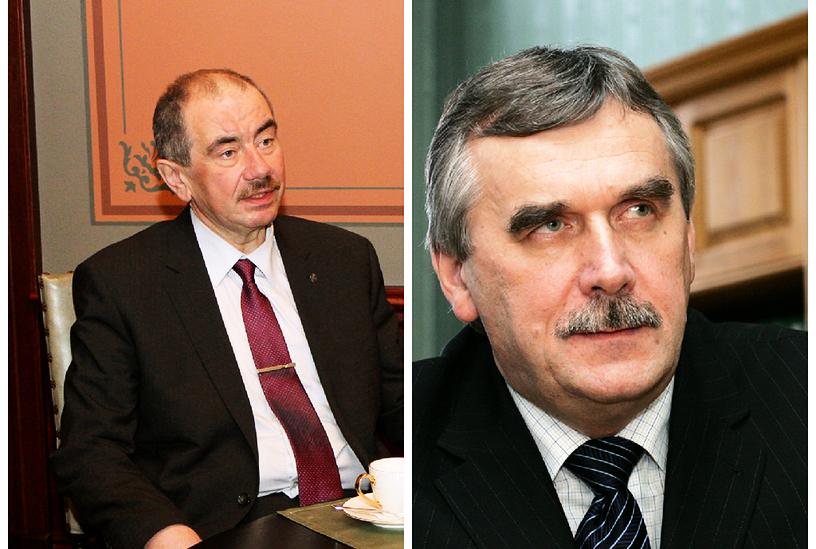The only choice besides the 7-year first-term top judge was his two-term (14-year) predecessor Andris Guļāns.
To select the most appropriate candidate to head the nation’s judicial branch of government the Judges’ Plenum deliberated for several hours over both candidates, whose virtues were held to be equally outstanding amongst their colleagues, if one doesn’t take into account differences between the administrative (pro-Guļāns) and civil affairs (pro-Bičkovičs) court departments.
In the end 23 judges supported the incumbent, while 15 would rather have seen the previous holder of the office return to the ongoing job of court system reforms amidst a questionably mired reputation in the 'court of public opinion'.
Bičkovičs expressed satisfaction in his colleagues’ support and vowed to seek the support of parliament now that he was a step closer to nomination. The Judicial Council this week, whose decision is also of weight in Saeima’s decision to approve a nominee, was split in its support of either Bičkovičs or Guļāns, while the Unity Party announced it would not support the reelection of the incumbent.
On Friday Latvia’s branch of Transparency International Delna chief Gundars Jankovs predicted “stagnation” in the courts if Bičkovičs continues to lead the judicial branch for another seven years, reported national information agency LETA.
''Bickovics has not proven himself as a capable leader whose work is aimed at the continued improvement and development of the court system. But our society needs a rapid strengthening of the court system, and we must be confident that our court system is a free and just one,'' Jankovs said, adding that Bickovics has not shown through his work during his first term that he is capable of this.
The pending approval of incumbent General Prosecutor Ēriks Kalnmeiers must also await the outcome of the Saeima vote on the Chief Justice of the Supreme Court according to the constitutionally defined hierarchy of judicial powers.






























